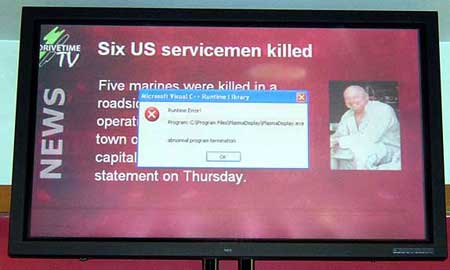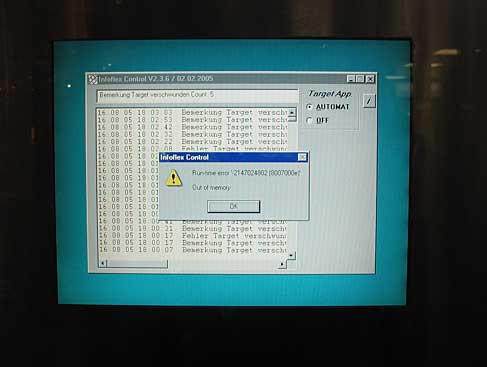One of the things that baffles me most is why the computing industry is so frightened of the content industry (record companies, movie studios, publishers). After all, information technology is immeasurably more important to the US and all other developed economies than are all the entertainment companies combined.
What they want to do is to slow technological development to fit in with their obsolete, low-tech business models. That’s why they loathe the personal computer — because it’s a general-purpose device that can be used for anything that a clever programmer can devise. They want every device to be like a Sony Playstation — with “no consumer-serviceable parts”, and warranty that is voided if the case is opened: i.e. devices that are only used for the purpose designated by their manufacturers.
In the end, computing is too important for this kind of obscurantist tyranny to be allowed to triumph. Users should always be the ones who decide what their computers will be used for. But for the time being legislators and — incredibly — technology companies appear to be cowed by it. Now — in the form of an official Microsoft document (in Word format, natch) — comes evidence of the astonishing compromises that Microsoft has accepted in the next release of Windows to placate the copyright thugs. In Ed Felten’s words,
The document reveals that movie studios will have explicit veto power over what is included in some parts of Vista. For example, pages 22-24 describe the “High Bandwidth Cipher” which will be used to encrypt video data is it passes across the PC’s internal PCIe bus. Hollywood will allow the use of the AES cipher, but many PCs won’t be able to run AES fast enough, leading to stutter in the video. People are free to design their own ciphers, but they must go through an approval process before being included in Windows Vista.
But the surrender is even more startling that this. For example, The second criterion for acceptance is that evidence must be presented to Hollywood and other content owners, and they must agree that it provides the required level of security. Written proof from at least three of the major Hollywood studios is required.
There’s lots more in this vein. To those of us accustomed to seeing Microsoft as the ultimate corporate bully, this is mind-blowing stuff. A company that thumbs its nose at the US Federal government (and gets away with it) rolls over for Hollywood. Can you imagine this happening in any other industry — where the dominant company in one market allows a small but litigious industry from another sector to control the design of its products? It’s weird.





